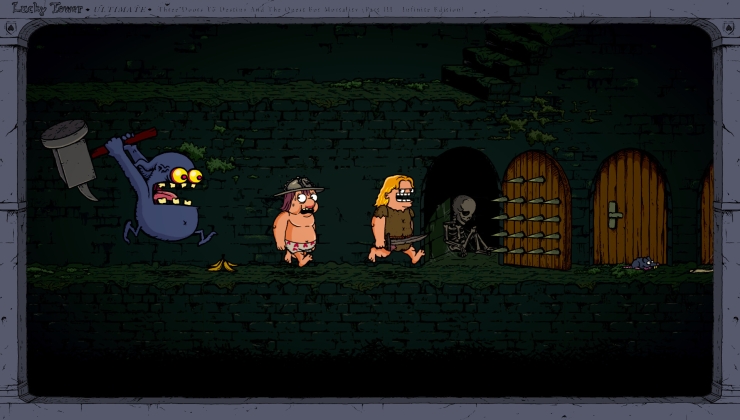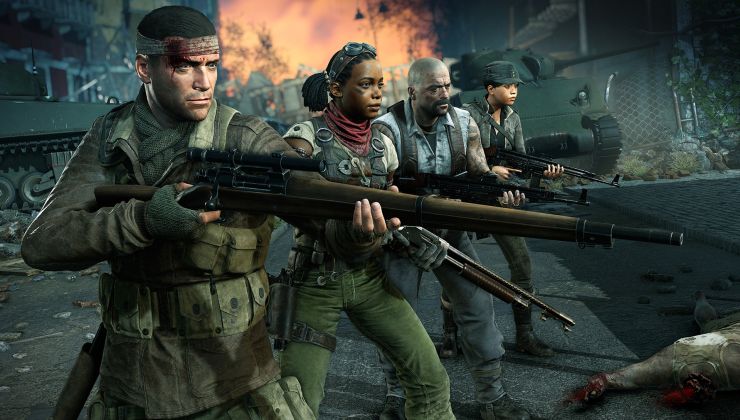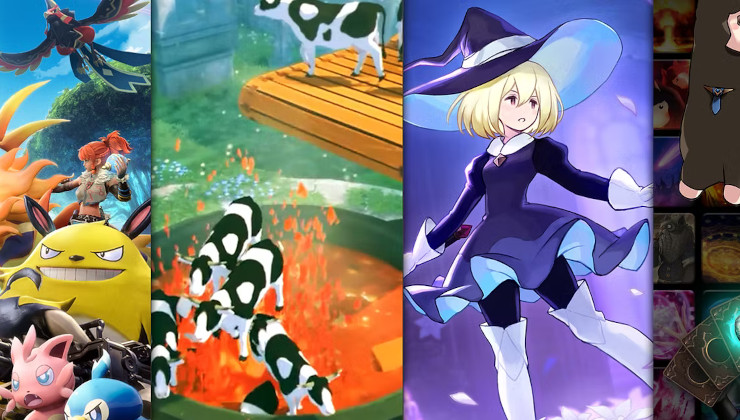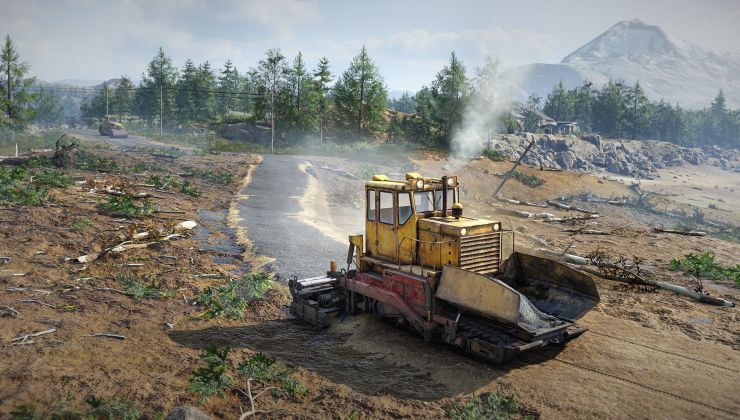In the wake of Unity setting everything on fire with their new revenue model for developers, here's a reminder on what other game engines and tech is out there for developers to look into.
There's actually absolutely loads out there, this is just a small slice of others developers can look into. So this is not an exhuastive list, not even close, because there is quite literally thousands of different pieces of tech developers can use.
Full Game Engines
Godot Engine - Free, open source, no royalties at all. There's W4 Games for commercial support.
- Supports: Linux, macOS, Windows, iOS, Android, HTML5/Web.

Game Pictured - Cassette Beasts, made with Godot Engine.
Defold - Free, full source code access. Not open source under the OSI definition, but incredibly open. Mainly not classed as open source due to their custom license, that forbids anyone to charge for the game engine (even themselves).
- Supports: Linux, macOS, Windows, PlayStation 4, Switch, iOS, Android. Planned: Xbox (Q1 2024), PlayStation 5 (Q3 2023)
Solar2D - Free, open source, no royalties at all.
- Supports: iOS, tvOS, Android, Android TV, macOS, Windows, Linux and HTML5/Web.
Ren'Py (visual novel engine) - Free, open source, no royalties at all.
- Supports: Android, Linux, Windows, macOS, iOS.
Solarus - Free, open source, no royalties at all.
- Supports: Windows, macOS, Linux, Android, Nintendo Switch
HaxeFlixel - Free, open source, no royalties at all.
- Supports: Windows, Linux, macOS, Android, iOS, HTML5/Web.
Unreal Engine - Free, no royalties until you earn $1 million USD. Full source code access (but not open source). Epic also confirmed they can't just change the licensing on you.
- Supports: Windows PC, PlayStation 5, PlayStation 4, Xbox Series X, Xbox Series S, Xbox One, Nintendo Switch, macOS, iOS, Android, ARKit, ARCore, OpenXR, SteamVR, Oculus, Linux, and Steam Deck.
Castle Game Engine - Free, open source, no royalties at all.
- Supports: Linux, Windows, macOS, FreeBSD, Android, iOS, Nintendo Switch. Planned: Xbox, WebGL.
GDevelop - Free, open source, no royalties at all. Uses an events system instead of traditional programming.
- Supports: Windows, Linux, macOS, HTML5.
Adventure Game Studio - Free, open source, no royalties at all but there's a few things to note for commercial games.
- Supports: Windows, macOS, Linux. The editor is only available for Windows.
Bevy - Free, open source, no royalties at all.
- Supports: Windows, macOS, Linux, Web, iOS. Planned: Android.
O3DE - Free, open source, no royalties at all.
- Supports: Windows, macOS, Linux, Android, iOS.
Heaps - Free, open source, no royalties at all.
- Supports: Windows, macOS, Linux, Android, iOS, tvOS, Nintendo Switch, PlayStation 4, Xbox One, HTML5.
Frameworks
LÖVE - Free, open source, no royalties at all.
- Supports: Windows, Linux, macOS, Android and iOS.
FNA - Free, open source, no royalties at all.
- Supports: Windows, macOS, Linux, iOS, tvOS, Xbox (One, Series S|X), Nintendo Switch.
MonoGame - Free, open source, no royalties at all.
- Supports: Windows, macOS, Linux, iOS/iPadOS, Android, PlayStation 4, PlayStation 5, Xbox, and Nintendo Switch.
LDtk (2D level editor) - Free, open source, no royalties at all.
- Supports: Windows, macOS, Linux
There's a lot more to game development than Unity. However, switching game engine mid-way through a multi-year journey certainly isn't easy or even feasible at all for some.
Feel free to give over your suggestions in the comments. These are just some choice picks for developers wanting to try out something different.
It's more similar to good old Flash, with 2D animation capabilities.
Despite receive support from Mozilla and several other origanization, the development seems stuck at the moment. The latest commit were in 2021.
Here you see again, what it looks like to devote your career to a volatile proprietary software toolset. And that's just one piece of software out of many.when it comes to make games, the game engine is the most important piece of the equation.
and, its not like we those companies had any choice anyway, the open source engines sucked prior to godot, building your own engine is expensive and not everyone can afford (hell even the big studios are outsourcing it), engine migration isnt easy and even if some engine like godot is as good as unity, the ecosystem off add'ons for it is in its infancy, that coming from someone who use and love godot.
Yeah, I think maybe Unity really misjudged their timing on this revenue grab. They did it just as Godot was getting good enough and momentum-y enough that a push this size could really help Godot eat their lunch and get that ecosystem building at high speed.Here you see again, what it looks like to devote your career to a volatile proprietary software toolset. And that's just one piece of software out of many.when it comes to make games, the game engine is the most important piece of the equation.
and, its not like we those companies had any choice anyway, the open source engines sucked prior to godot, building your own engine is expensive and not everyone can afford (hell even the big studios are outsourcing it), engine migration isnt easy and even if some engine like godot is as good as unity, the ecosystem off add'ons for it is in its infancy, that coming from someone who use and love godot.
If you've taken an interest in game development, and you're a Blender fan, you may have heard of [Armory3D](https://armory3d.org/). It's completely separate from UPBGE, but it sounds very similar in how it works with Blender.
And last, but not least, one of my favourite game engines is [GZDoom](https://zdoom.org), the culmination of over 20 years of bug fixes and feature additions to the id Tech 1 engine.
Last edited by Talon1024 on 14 Sep 2023 at 6:52 pm UTC
[Pygame](https://www.pygame.org) - but only for the hardcore!Funny story: while getting some undergraduate research experience in college I'd been teaching myself Python for several months, and had a need to write a program to display pairs of images for comparison. I tried with whatever the recommended GUI engine was (PyTK, I think? Or WX-something-or-other?), and while I made a GUI pretty easily, after like a week of work I simply could not get it to display images. So then I had a thought, "What programs, of all programs, need to make displaying images easy? Games!" So I switched to pygame (this was a little student project, so it was tiny and easy to pivot), and within I think a day or two I had a program that could actually display images. It had a 100% hand-made GUI with no bells or whistles, but by golly it worked for what I needed!
[Pygame](https://www.pygame.org) - but only for the hardcore!Funny story: while getting some undergraduate research experience in college I'd been teaching myself Python for several months, and had a need to write a program to display pairs of images for comparison. I tried with whatever the recommended GUI engine was (PyTK, I think? Or WX-something-or-other?), and while I made a GUI pretty easily, after like a week of work I simply could not get it to display images. So then I had a thought, "What programs, of all programs, need to make displaying images easy? Games!" So I switched to pygame (this was a little student project, so it was tiny and easy to pivot), and within I think a day or two I had a program that could actually display images. It had a 100% hand-made GUI with no bells or whistles, but by golly it worked for what I needed!
one of the whole points of open source is learning from other people code, i remember when i wrote an chromakey code, just by reading some code that teach how to convert an image to black and white.
The engine is still under development, offering a good opportunity for those interested to contribute and shape its evolution according to the needs of the developer community. It might not be the go-to for everyone but could potentially be a fitting choice for browser-based game projects for those who find the ECS pattern appealing.
For those who are intrigued, more details can be found on their official website: excaliburjs.com








 How to set, change and reset your SteamOS / Steam Deck desktop sudo password
How to set, change and reset your SteamOS / Steam Deck desktop sudo password How to set up Decky Loader on Steam Deck / SteamOS for easy plugins
How to set up Decky Loader on Steam Deck / SteamOS for easy plugins
See more from me